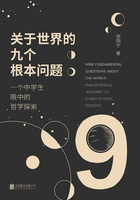
Ⅱ.Aristotle's Eudaimonia
Eudaimonia is the core concept of Aristotle's virtue ethics and political theory, which has been translated as “true happiness worth seeking.” Distinguished from the traditional understanding of “happiness”,eudaimonia is not about transient pleasure. In fact, according to Aristotle, living virtuously can mean doing something that causes us depression.Unlike animals, eudaimonia is a unique capacity of rational beings who have agencies.
Aristotle believes that an authentically good life is in accordance with virtue and can be realized in a civil society but not elsewhere. Only when behaving virtuously in society, a person's potential is fulfilled to the maximum. Virtue in Aristotle's term is moral excellence. It demands a person to act in harmony with a proper purpose. Similarly, a eudaimonia life is a life dedicated to completely developing the moral excellence of being a person. This development requires a person to extensively practice the virtues including courage, wisdom, moderation, kindness, tolerance, and other necessary virtues. This doctrine is characterized as the virtue ethics of Aristotle.
Aristotle also distinguishes three lives: the first one is devoted to physical pleasure, the second one is devoted to politics, and the last one is devoted to knowledge (philosophy). He argues that physical pleasure cannot be the ultimate goal of a person because pleasure is judged by something other than pleasure itself. Then, Aristotle suggests that a philosophical life, or a life devoted to theoria, is the best life. Philosophical investigations themselves, however, are not the ultimate end of people since they aim to achieve theoretical wisdom of the world. Aristotle provides an alternative explanation to it: the most desirable life is lived by a person who has a comprehensive understanding of the universal laws, and who has resources for living a life devoted to the exercise of that understanding.Although he rejects certain defects of the political life, philosophical life still has the social nature. For Aristotle, what authentically matters is that a person needs to exercise theoretical wisdom in society, and this process cannot be achieved without the presence of the community.
In conclusion, according to Aristotle, eudaimonia is the final goal for people. Hence, a desirable polis (a city-state in its ideal form for philosophical purposes) must help its citizens to realize this regulative ideal. In fact, Aristotle directly points out, “political theory characterizes the forms of social organization best suited to its realization (of human life)”.